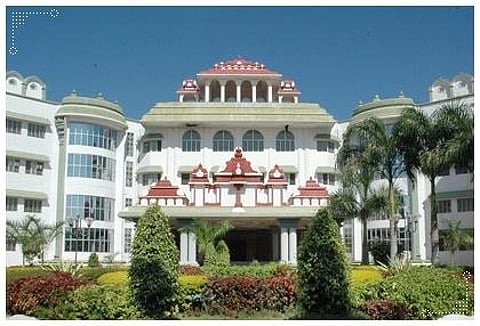

MADURAI: Observing that the state should ensure that temple staff are paid proper salary irrespective of the financial condition of the temple, the Madurai Bench of the Madras High Court directed the government to pay proper salary and benefits to the staff of Rajagopalaswamy Kulasekara Aalwar Temple in Ambasamudram as per the Minimum Wages Act.
Justice GR Swaminathan passed the order on a petition filed in 2019 by Periyanambi Narasimha Gopalan, an archakar in the temple. Gopalan had challenged a 2019 G.O., which said the salary would depend on several parameters, including income of the temple. Gopalan sought revision of salary structure of staff.
Justice Swaminathan noted that Gopalan was getting a monthly salary of Rs 750 in 2017 and it was enhanced to Rs 2,984 per month in 2019. It is impossible to lead a decent life with what is being provided to the temple staff, he said.
“Temples are an integral part of our culture. In Tamil Nadu, there are thousands, many of which are ancient. Since they have architectural and cultural value, they have to be preserved and maintained. This is possible only through temple staff,” the judge opined. When the state has assumed regulatory responsibility for all public temples, it cannot wash away its consequential obligations towards the staff, he added. The judge also rejected the government’s decision to fix staff salary based on the temple’s income.
“Temples are public institutions. By maintaining customary practices of the temple, the petitioner and the other temple staff discharge public functions. They have to be paid a proper salary for the work they do. It is unreasonable to tell the temple staff that since their establishment is starved of funds, they have to remain content with the pittance they receive. That would be a breach of constitutional obligations in Article 14 r/w Article 43,” he observed.